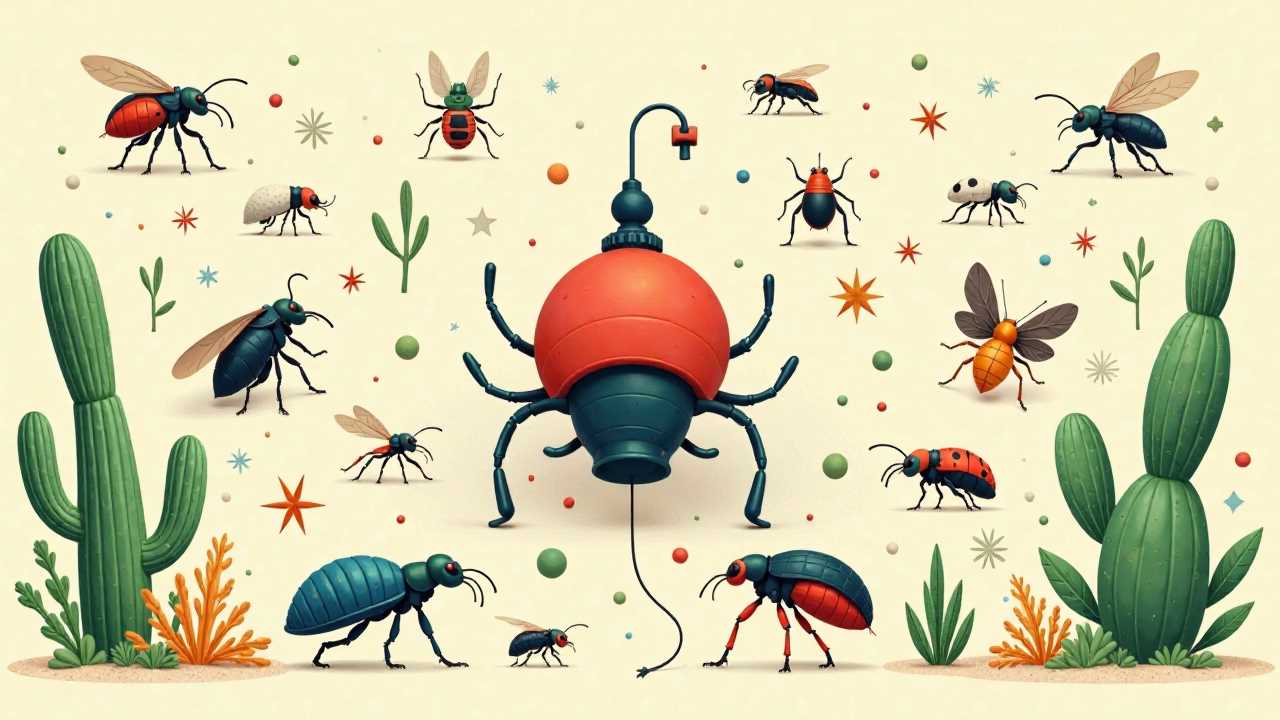
Understanding Pest Management
Effective pest control methods for gardens begin with a solid understanding of pest management. This approach involves a combination of strategies aimed at preventing and controlling pest populations while minimizing harm to the environment. By integrating various techniques, we can create a balanced ecosystem that supports plant health and deters unwanted pests.
Pest management is not just about eliminating pests; it’s about managing them in a way that is sustainable and effective. This includes monitoring pest populations, identifying the types of pests present, and determining the best methods for control. By adopting a proactive approach, we can reduce the likelihood of pest infestations and maintain a thriving garden.
Organic Solutions for a Healthier Garden
When considering organic solutions, we focus on methods that are environmentally friendly and safe for both plants and beneficial organisms. Organic pest control methods often include the use of natural substances and practices that disrupt pest life cycles without the use of synthetic chemicals.
One popular organic solution is the use of neem oil, derived from the seeds of the neem tree. This natural pesticide disrupts the hormonal systems of insects, preventing them from maturing and reproducing. Another effective organic solution is insecticidal soap, which suffocates soft-bodied pests like aphids and spider mites. These solutions not only target pests but also protect beneficial insects that contribute to the garden's health.
Utilizing Natural Repellents
Natural repellents are another effective method for controlling pests in gardens. These substances deter pests without causing harm to plants or the surrounding environment. Common natural repellents include garlic, chili pepper, and essential oils such as peppermint and lavender.
For instance, a homemade garlic spray can be created by blending garlic cloves with water and allowing it to steep overnight. This mixture can then be sprayed on plants to repel aphids, beetles, and other common pests. Similarly, a chili pepper spray can deter larger pests like rabbits and deer, protecting your garden from unwanted nibblers.
Encouraging Beneficial Insects
One of the most effective pest control methods is to attract beneficial insects to your garden. These insects, such as ladybugs, lacewings, and parasitic wasps, play a crucial role in keeping pest populations in check. They feed on harmful insects and help maintain a balanced ecosystem.
To attract beneficial insects, we can plant a variety of flowers and herbs that provide nectar and pollen. Plants like marigolds, dill, and yarrow are excellent choices for drawing in these helpful allies. By creating a welcoming environment for beneficial insects, we can enhance our garden's natural defenses against pests.
Implementing Traps for Effective Control
Traps are a practical and effective way to manage pest populations in gardens. Various types of traps can be used, depending on the specific pests we are targeting. For example, sticky traps can capture flying insects, while bait traps can lure and trap ground-dwelling pests like slugs and snails.
Homemade traps can also be effective. A simple beer trap for slugs involves burying a container at soil level and filling it with beer. The slugs are attracted to the beer, fall in, and cannot escape. This method is not only effective but also environmentally friendly, as it does not involve harmful chemicals.
The Power of Companion Planting
Companion planting is a time-tested method that involves growing certain plants together to enhance growth and deter pests. By strategically pairing plants, we can create a natural pest control system that benefits both plants.
For instance, planting marigolds alongside vegetables can deter nematodes and other pests. Similarly, the combination of basil and tomatoes is known to enhance the flavor of tomatoes while repelling harmful insects like aphids and whiteflies. By understanding the relationships between different plants, we can create a more resilient garden ecosystem.
Monitoring and Maintenance
Regular monitoring and maintenance are essential components of effective pest control. By keeping a close eye on our gardens, we can identify potential pest issues before they escalate. This includes checking for signs of pest damage, such as holes in leaves or discolored foliage.
Implementing a routine inspection schedule allows us to catch problems early and take appropriate action. This proactive approach not only helps in managing pests but also promotes overall plant health. Keeping the garden tidy by removing debris and dead plants can also reduce pest habitats and breeding grounds.
Conclusion
In summary, effective pest control methods for gardens encompass a variety of strategies that prioritize sustainability and environmental health. By integrating pest management techniques, utilizing organic solutions, employing natural repellents, encouraging beneficial insects, implementing traps, and practicing companion planting, we can create a thriving garden ecosystem. Regular monitoring and maintenance further enhance our ability to manage pests effectively, ensuring our gardens remain healthy and productive. Embracing these methods not only protects our plants but also contributes to a healthier environment for all living organisms.
 Family Craft ProjectsHome ImprovementCooking and BakingReuse and RecycleDIY GiftsEco-Friendly ProjectsDIY Home SolutionsSeasonal ActivitiesFun and GamesLearn TogetherPrivacy PolicyTerms And Conditions
Family Craft ProjectsHome ImprovementCooking and BakingReuse and RecycleDIY GiftsEco-Friendly ProjectsDIY Home SolutionsSeasonal ActivitiesFun and GamesLearn TogetherPrivacy PolicyTerms And Conditions
